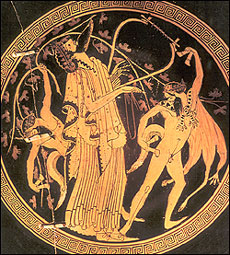Toby Ord of Giving What We Can has other interests, including ones that connect back to Solomonoff inference and algorithmic information theory. Specifically, Ord worked earlier on topics related to hypercomputation or, more simply put, the notion that there may be computational systems that exceed the capabilities of Turing Machines.
Turing Machines are abstract computers that can compute logical functions, but the question that has dominated theoretical computer science is what is computable and what is incomputable. The Kolmogorov Complexity of a string is the minimal specification needed to compute the string given a certain computational specification (a program). And the Kolmogorov Complexity is incomputable. Yet, a compact representation is a minimalist model that can, in turn, lead to optimal future prediction of the underlying generator.
Wouldn’t it be astonishing if there were, in fact, computational systems that exceeded the limits of computability? That’s what Ord’s work set-out to investigate, though there have been detractors.… Read the rest





